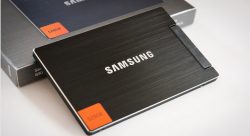 Solid State Drives (SSD) are the next big thing in local data storage, therefore it is highly essential that you know how to keep SSDs healthy and functional. By following the tips given below, you can easily keep them healthy and functional and enjoy the durability of SSDs.
Solid State Drives (SSD) are the next big thing in local data storage, therefore it is highly essential that you know how to keep SSDs healthy and functional. By following the tips given below, you can easily keep them healthy and functional and enjoy the durability of SSDs.
What are SSDs?
A Solid State Drive is a device that uses non-volatile memory for storing data. Compared to a hard disk drive, a solid state drive does not have any moving parts. When compared to hard disks, SSDs are faster, reliable and require less power. But, here’s the catch, SSDs are expensive.
Advantages of Solid State Drive
Solid State Drives have many advantages over hard disk drives. Even though it is quite expensive and difficult to buy SSDs, many people prefer buying SSDs because of the advantages they have over hard disk. The main advantages of SSDs are:
- Faster: Since there are no physical read-heads for SSDs, they are faster compared to Hard Disk Drives.
- Durable: SSDs have no moving parts. So, it is safe to store your data and chances of it getting damaged are fewer. SSDs are ideal for people who are not very careful in handling their computers or laptops.
- Noise: SSDs makes no noise at all. Most hard drives make noise when working.
Tips for Keeping Your SSDs Healthy and Functional
As SSDs do not have a moving part, it does not suffer from physical wear and tear. Every time SSDs try to store or write some data to the drive, SSDs will be removing an existing block and replacing it with the new data. After a few years, SSDs will start to slow down because of this process. So it is very important that you keep your SSDs healthy and functional. Some tips for keeping SSDs healthy and functional are:
- TRIM command: The TRIM command helps to ensure that your SSDs do not slow down. The TRIM command helps to improve the efficiency of SSDs and also make it write faster. The TRIM command has the ability to remove all the unwanted data from your storage system and make SSDs healthy and functional.
- Management software: SSD uses its own management software that is designed to support its unique needs. The user has to make sure that the management software is up-to-date and this will keep SSDs healthy and functional.
- Dividing your data: SSDs can easily store larger files and photos, but when you store them, it affects the performance of the SSD. Therefore, it is highly recommended that you avoid storing very large files to keep your SSDs healthy and functional.
- Do not fill it up: Always leave sufficient empty space in your SSD. If your SSDs is filled to more than 90% of its capacity, then it will affect the performance of the SSD. Therefore, you should ensure that your SSDs have enough free space.
- Do not defrag: Defragmentation should not be done in your SSDs. Defragmentation will only shorten the life of your SSDs. So, to keep your SSDs healthy and functional, you should not defrag it.
Conclusion
Solid State Drives are slowly but steadily taking over data storage requirements of users. So follow the tips given and keep your SSDs healthy and functional.

 Email article
Email article



